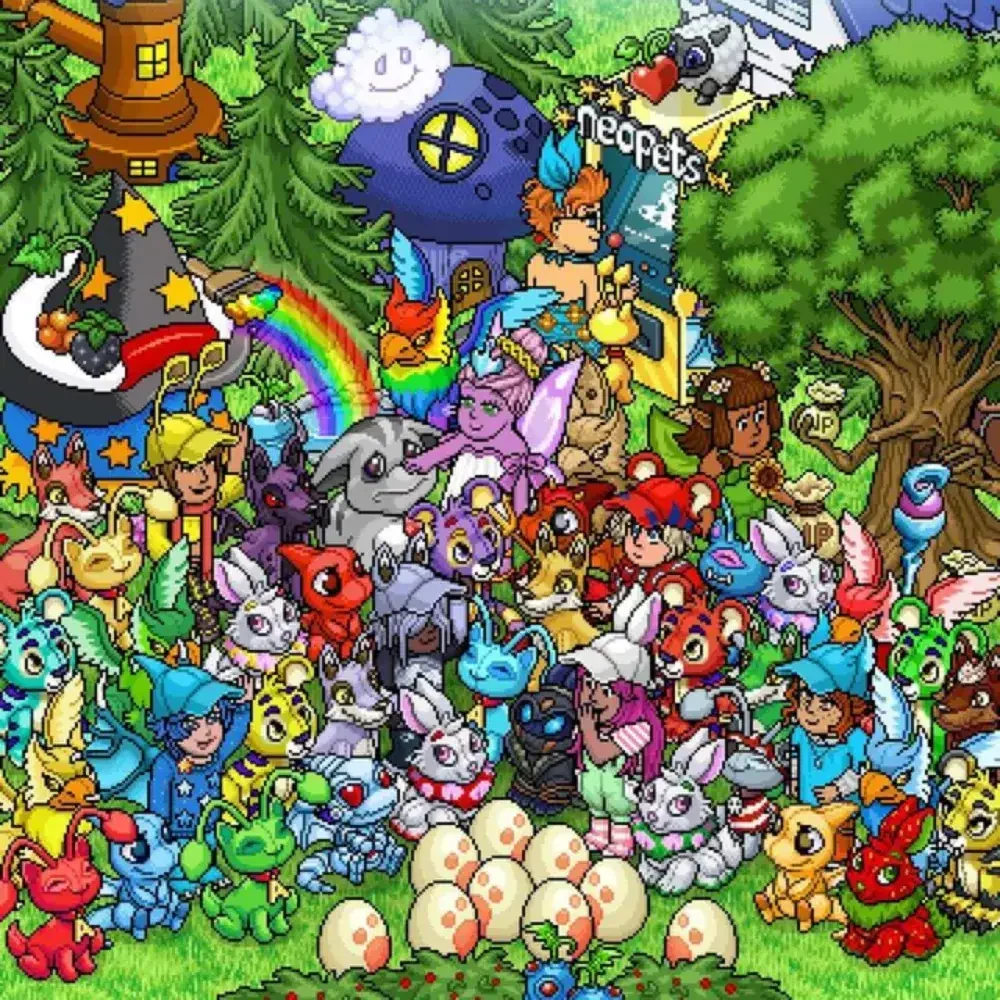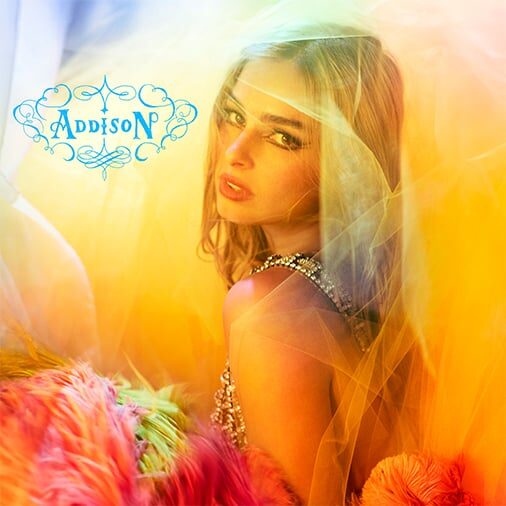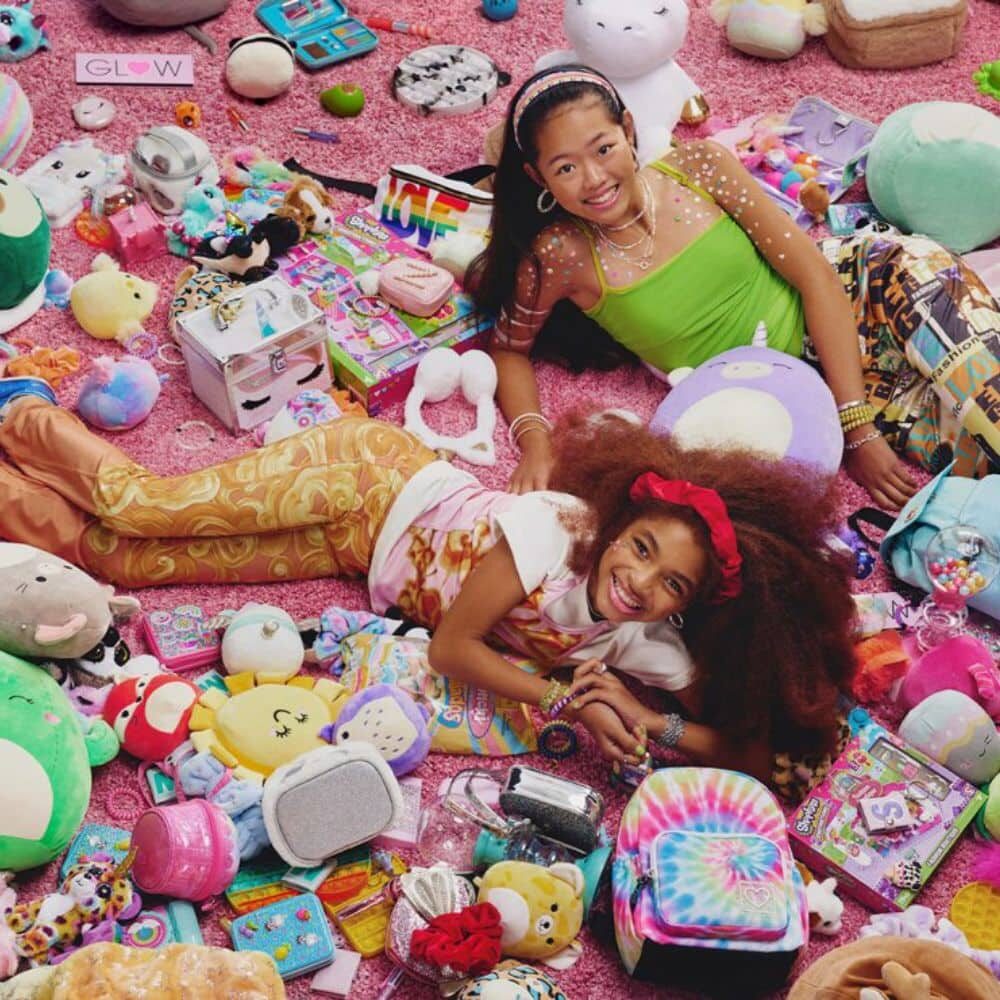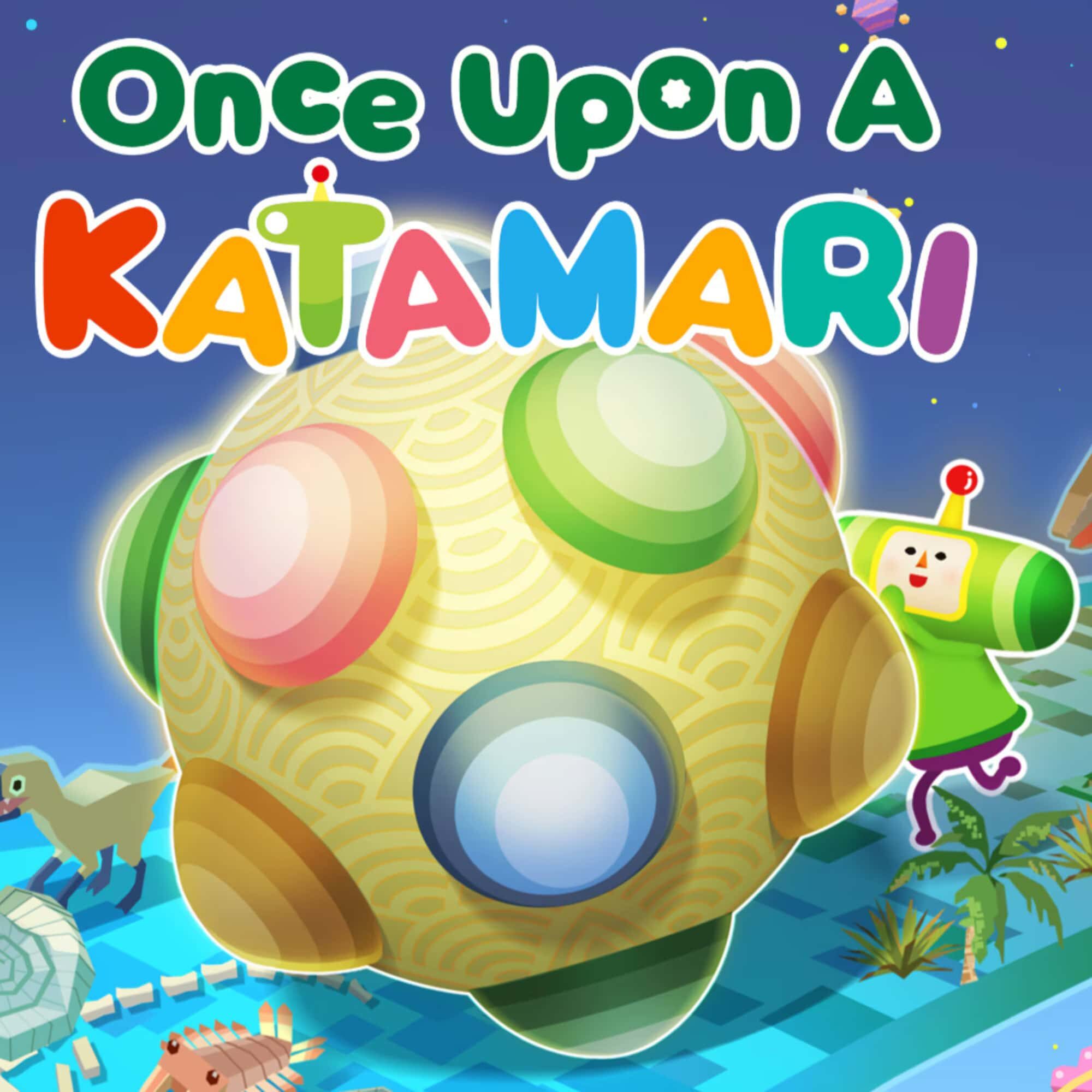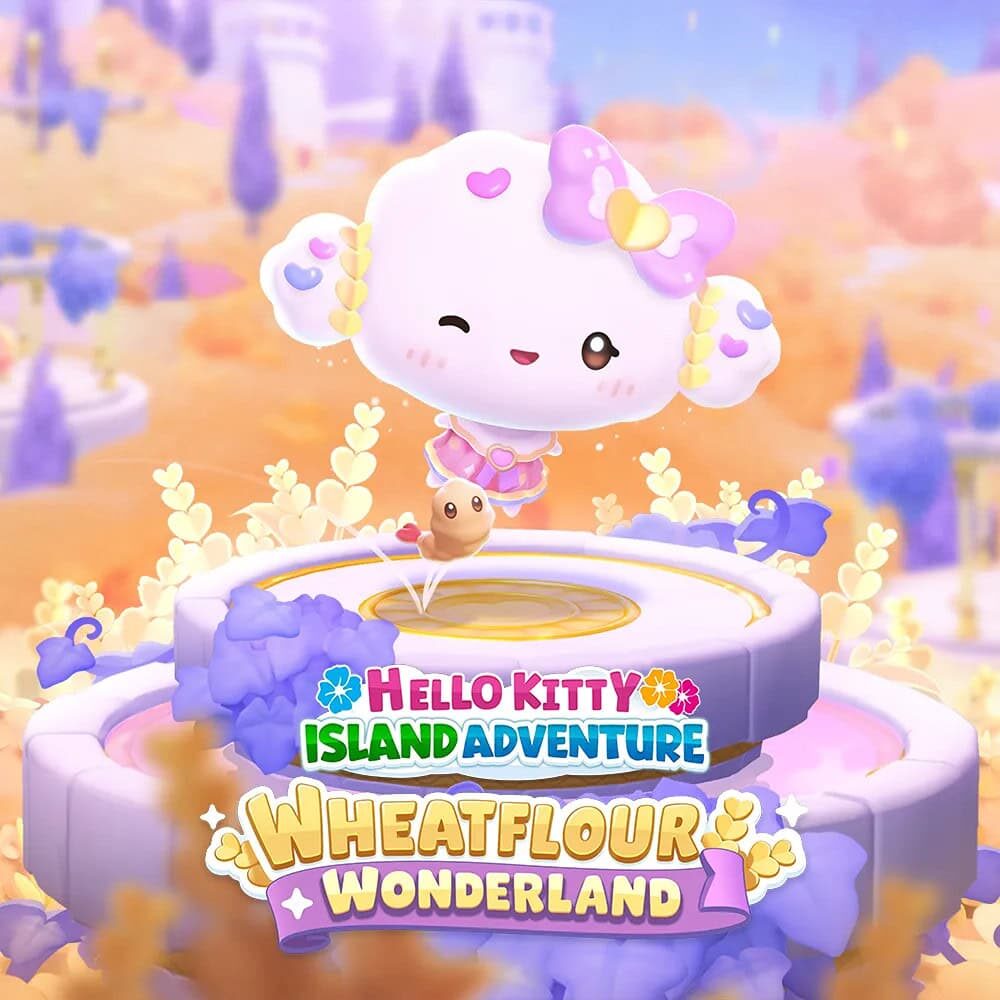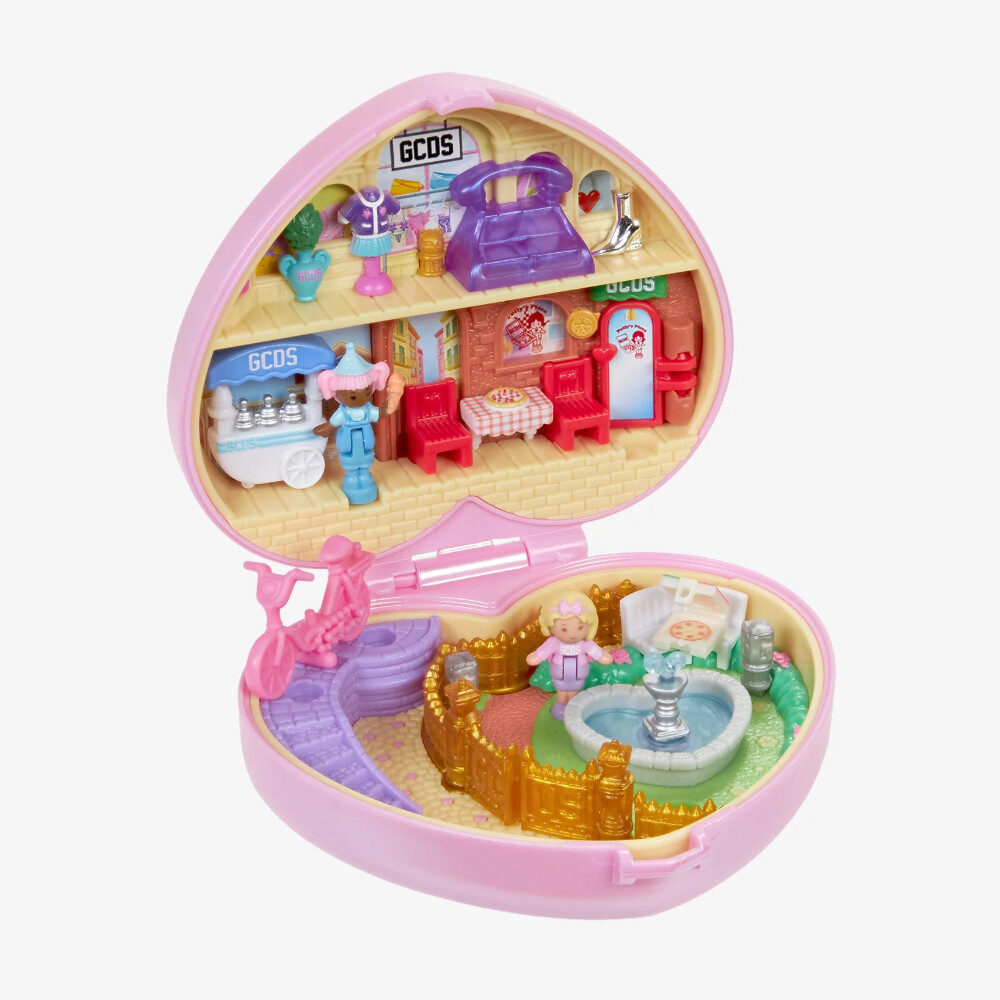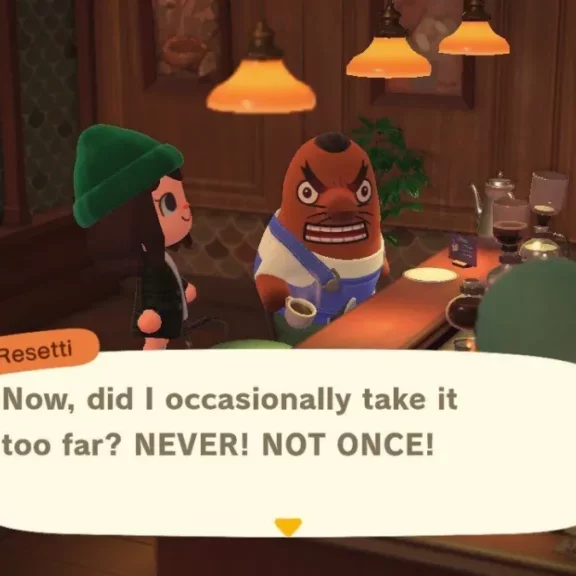
Do We Miss When Animal Crossing Villagers Were Mean to Us?
Our repeated nightmares about an angry mole popping up when we don’t save our game can be put to rest. Nowadays, it is unlikely that those involved in the gaming scene wouldn’t be familiar with the name Animal Crossing, a slice-of-life town simulation game which debuted on the Nintendo GameCube in 2001. It made an immediate impression on players with its quirky style, relaxing music, cast of strange animal characters, and meandering gameplay. In Animal Crossing, players aren’t restricted to the confines or limitations of a story. The emphasis lay instead on the completion of small tasks, repaying your persistent…
TEXT
Our repeated nightmares about an angry mole popping up when we don’t save our game can be put to rest.
Nowadays, it is unlikely that those involved in the gaming scene wouldn’t be familiar with the name Animal Crossing, a slice-of-life town simulation game which debuted on the Nintendo GameCube in 2001. It made an immediate impression on players with its quirky style, relaxing music, cast of strange animal characters, and meandering gameplay.
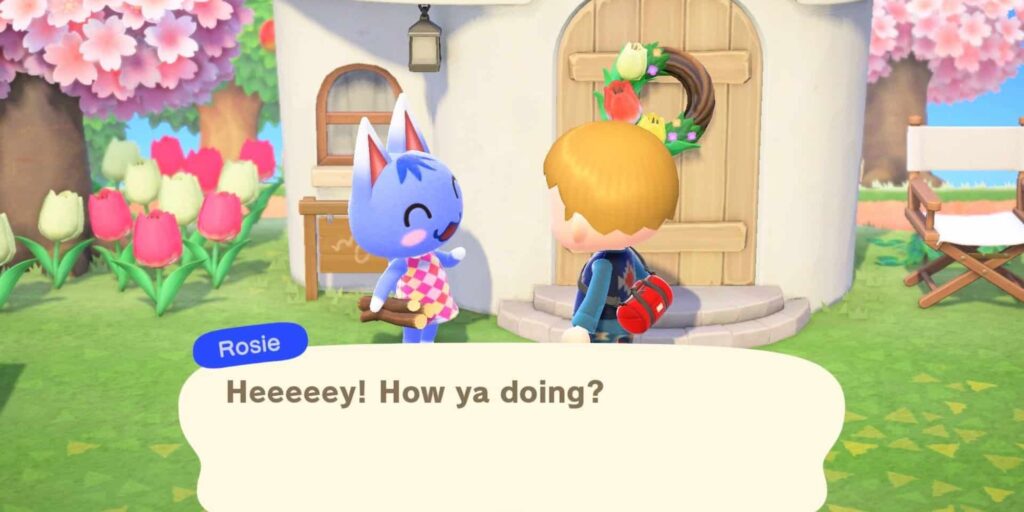
In Animal Crossing, players aren’t restricted to the confines or limitations of a story. The emphasis lay instead on the completion of small tasks, repaying your persistent raccoon landlord and, most importantly, interacting with your neighbours. Since the game does not force the player into the streamlined adherence to plot, the townsfolk would become arguably the most fundamental cornerstones of the franchise.
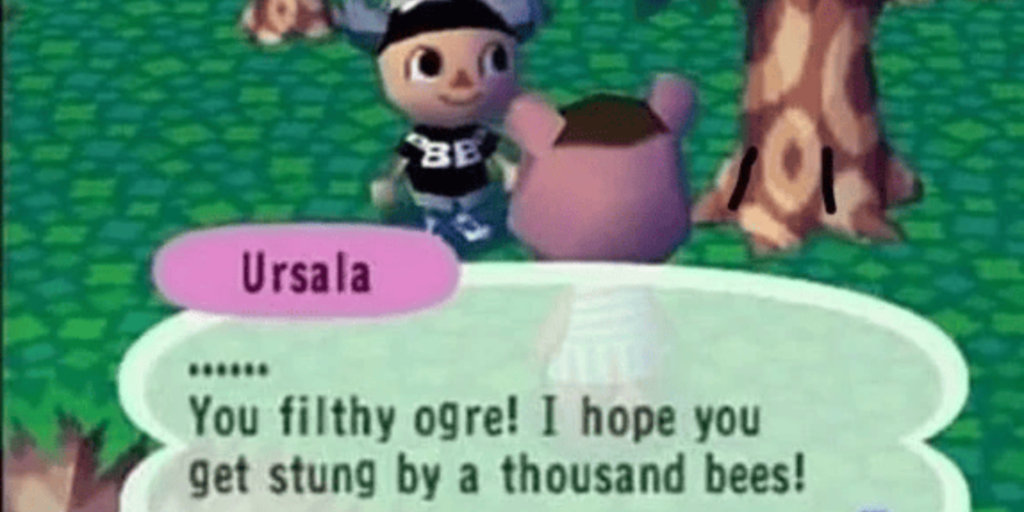
GameCube audiences noted the villagers’ overflowing personalities. A major draw of Animal Crossing was the player/character interaction. These strange little critters garnered a reputation for being funny, sweet, mischievous, and even kind of… mean. And audiences loved it! Villagers on GameCube would insult the players’ fashion, call them names, and even tell them to “get therapy.”
These quick quips felt all at once jarring, ironic, and out of place in a game equipped with such traditionally cute aesthetics. However, this contrast is precisely what made people fall in love with Animal Crossing. There was even a designated character, Resetti the mole, who would berate the player with insults should they forget to save their games.
Animal Crossing developed a relatively small, but devout following. Fans would welcome a series of mainline additions to the franchise in the coming years on the DS, Wii, and 3DS. In the follow-up titles, villagers were still fairly sassy, but they didn’t have the same bite as they did on the GameCube. The insults started to feel a little more safe, and players were okay with the shift because the villagers still had quite large personalities and dialogue to prove it.
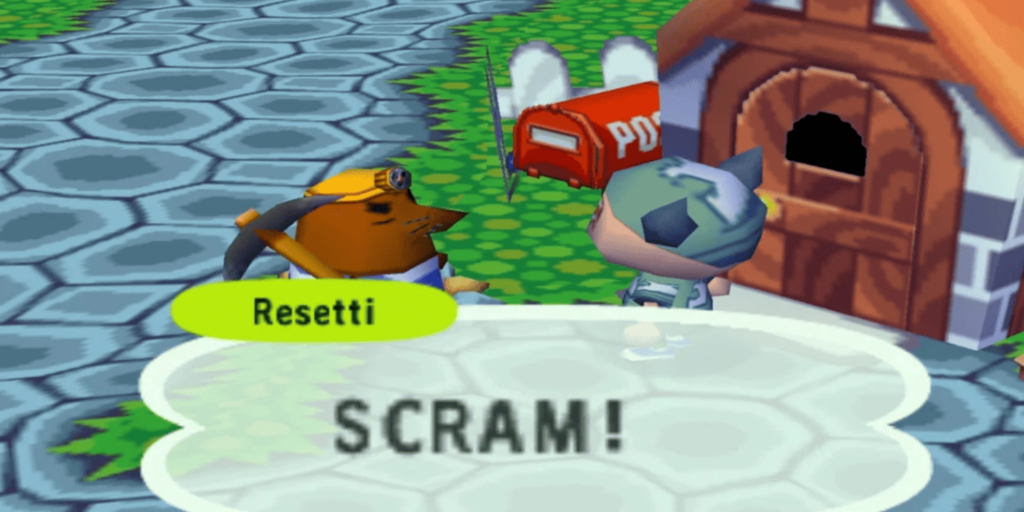
Enter 2020; it had been 8 years since the last mainline Animal Crossing game and, thanks to COVID-19, months since anyone had left their house. The pandemic and subsequent quarantine bred the perfect set of circumstances for the release of Animal Crossing: New Horizons on the Nintendo Switch. New Horizons offered a great deal of player control through customization in ways the franchise had never seen before, allowing players to create an entire island that would be entirely built and designed by themselves.
This new Animal Crossing title would reach an unbelievable level of popularity and go absolutely viral upon release. At the time of writing, GameInformer estimates that New Horizons has sold over 43 million copies, making it not only the most successful title in its respective series, but also one of the highest selling titles for Nintendo ever.
Once a niche Nintendo darling, now Animal Crossing was one of their behemoth titles, but how would New Horizons age after its time in the spotlight? Not ideally. See, as players worked through their early game adrenaline to perfect their islands day in and day out, the game’s flaws started to slowly show themselves. Although some detractors may argue that there are a lot, we’re here to discuss one. The villagers!
Many players noticed how quickly the villagers of New Horizons began to repeat themselves. The villagers that had felt entirely individual from one another in previous entries could now be summarized as personality archetypes with largely static dialogue. The quick-witted attitudes that had long been dwindling since the GameCube days had now entirely fizzled out. Villagers weren’t mean anymore, and to the devoted fans of the franchise, it felt like a genuine shame.
On social media players lamented about the old days when villagers had grit; but why? Did people simply have some deep-rooted yearning for degradation? Well, it may be a bit more complex. From the very beginning, Animal Crossing, at its core, had been a game about being a member of a community. Now, the game was back at a time when the very idea of community had to be redefined.
People wanted – needed – to feel like they had community at a time when they were physically incapable of seeking it out. This may be why people were so quick to notice and critique the lacking villager dialogue. As the months passed after the game’s launch, the flaws in villager interaction shone through as a testament to the audience’s need for connection.
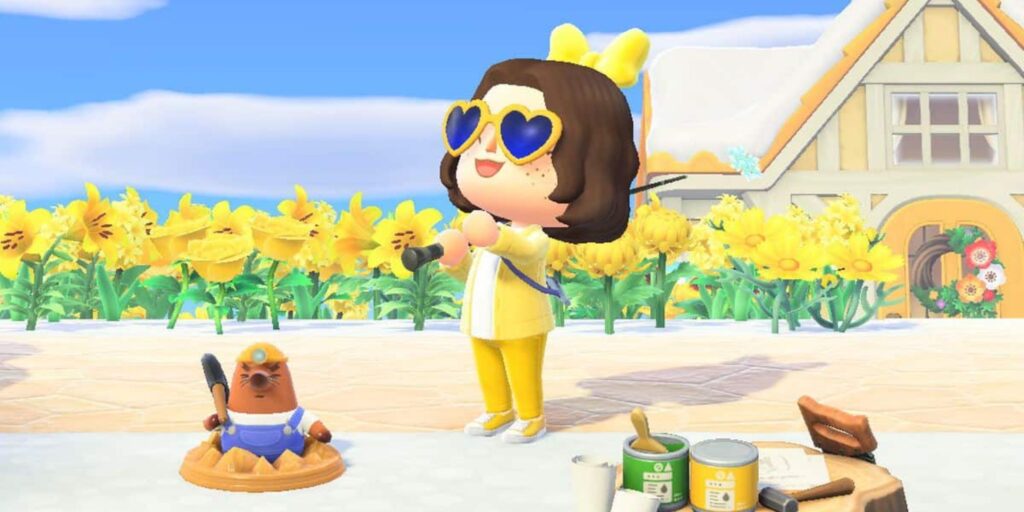
A part of connection is often the sense of camaraderie that arises in teasing those around you. Young adults, the main demographic of the game, have a tendency to cope through irony and meta-commentary. New Horizons would’ve been the perfect time to fully lean into and divulge in those more playfully aggressive dialogue patterns, but that didn’t happen.
That being said, it’s important to keep in mind that, in many other facets, New Horizons inarguably helped people find community throughout the pandemic. This installation made it easier than ever to visit your friend’s towns and, for a lot of people, that was the only way they were able to hang out with their friends.
Players have certainly spent their fair share of time on other player’s islands: helping them find fossils, pluck weeds, or gather new fruit. There were even instances of couples who had been unable to see each other finding creative ways to celebrate anniversaries through the use of custom designs and island decoration.
So, although New Horizons may have failed to provide the most charismatic island companions, it still stands as a fantastic and innovative addition to the franchise that succeeded in bringing real people together at a time where doing so seemed impossible. As for the mean villagers, hopefully Nintendo sees the overwhelming love people have for being clowned on by cute animals and considers revisiting the rude roots of the GameCube days.
Our repeated nightmares about an angry mole popping up when we don’t save our game can be put to rest.
Nowadays, it is unlikely that those involved in the gaming scene wouldn’t be familiar with the name Animal Crossing, a slice-of-life town simulation game which debuted on the Nintendo GameCube in 2001. It made an immediate impression on players with its quirky style, relaxing music, cast of strange animal characters, and meandering gameplay.

In Animal Crossing, players aren’t restricted to the confines or limitations of a story. The emphasis lay instead on the completion of small tasks, repaying your persistent raccoon landlord and, most importantly, interacting with your neighbours. Since the game does not force the player into the streamlined adherence to plot, the townsfolk would become arguably the most fundamental cornerstones of the franchise.

GameCube audiences noted the villagers’ overflowing personalities. A major draw of Animal Crossing was the player/character interaction. These strange little critters garnered a reputation for being funny, sweet, mischievous, and even kind of… mean. And audiences loved it! Villagers on GameCube would insult the players’ fashion, call them names, and even tell them to “get therapy.”
These quick quips felt all at once jarring, ironic, and out of place in a game equipped with such traditionally cute aesthetics. However, this contrast is precisely what made people fall in love with Animal Crossing. There was even a designated character, Resetti the mole, who would berate the player with insults should they forget to save their games.
Animal Crossing developed a relatively small, but devout following. Fans would welcome a series of mainline additions to the franchise in the coming years on the DS, Wii, and 3DS. In the follow-up titles, villagers were still fairly sassy, but they didn’t have the same bite as they did on the GameCube. The insults started to feel a little more safe, and players were okay with the shift because the villagers still had quite large personalities and dialogue to prove it.

Enter 2020; it had been 8 years since the last mainline Animal Crossing game and, thanks to COVID-19, months since anyone had left their house. The pandemic and subsequent quarantine bred the perfect set of circumstances for the release of Animal Crossing: New Horizons on the Nintendo Switch. New Horizons offered a great deal of player control through customization in ways the franchise had never seen before, allowing players to create an entire island that would be entirely built and designed by themselves.
This new Animal Crossing title would reach an unbelievable level of popularity and go absolutely viral upon release. At the time of writing, GameInformer estimates that New Horizons has sold over 43 million copies, making it not only the most successful title in its respective series, but also one of the highest selling titles for Nintendo ever.
Once a niche Nintendo darling, now Animal Crossing was one of their behemoth titles, but how would New Horizons age after its time in the spotlight? Not ideally. See, as players worked through their early game adrenaline to perfect their islands day in and day out, the game’s flaws started to slowly show themselves. Although some detractors may argue that there are a lot, we’re here to discuss one. The villagers!
Many players noticed how quickly the villagers of New Horizons began to repeat themselves. The villagers that had felt entirely individual from one another in previous entries could now be summarized as personality archetypes with largely static dialogue. The quick-witted attitudes that had long been dwindling since the GameCube days had now entirely fizzled out. Villagers weren’t mean anymore, and to the devoted fans of the franchise, it felt like a genuine shame.
On social media players lamented about the old days when villagers had grit; but why? Did people simply have some deep-rooted yearning for degradation? Well, it may be a bit more complex. From the very beginning, Animal Crossing, at its core, had been a game about being a member of a community. Now, the game was back at a time when the very idea of community had to be redefined.
People wanted – needed – to feel like they had community at a time when they were physically incapable of seeking it out. This may be why people were so quick to notice and critique the lacking villager dialogue. As the months passed after the game’s launch, the flaws in villager interaction shone through as a testament to the audience’s need for connection.

A part of connection is often the sense of camaraderie that arises in teasing those around you. Young adults, the main demographic of the game, have a tendency to cope through irony and meta-commentary. New Horizons would’ve been the perfect time to fully lean into and divulge in those more playfully aggressive dialogue patterns, but that didn’t happen.
That being said, it’s important to keep in mind that, in many other facets, New Horizons inarguably helped people find community throughout the pandemic. This installation made it easier than ever to visit your friend’s towns and, for a lot of people, that was the only way they were able to hang out with their friends.
Players have certainly spent their fair share of time on other player’s islands: helping them find fossils, pluck weeds, or gather new fruit. There were even instances of couples who had been unable to see each other finding creative ways to celebrate anniversaries through the use of custom designs and island decoration.
So, although New Horizons may have failed to provide the most charismatic island companions, it still stands as a fantastic and innovative addition to the franchise that succeeded in bringing real people together at a time where doing so seemed impossible. As for the mean villagers, hopefully Nintendo sees the overwhelming love people have for being clowned on by cute animals and considers revisiting the rude roots of the GameCube days.

Enjoyed this story? Support independent gaming and online news by purchasing the latest issue of G.URL. Unlock exclusive content, interviews, and features that celebrate feminine creatives. Get your copy of the physical or digital magazine today!


